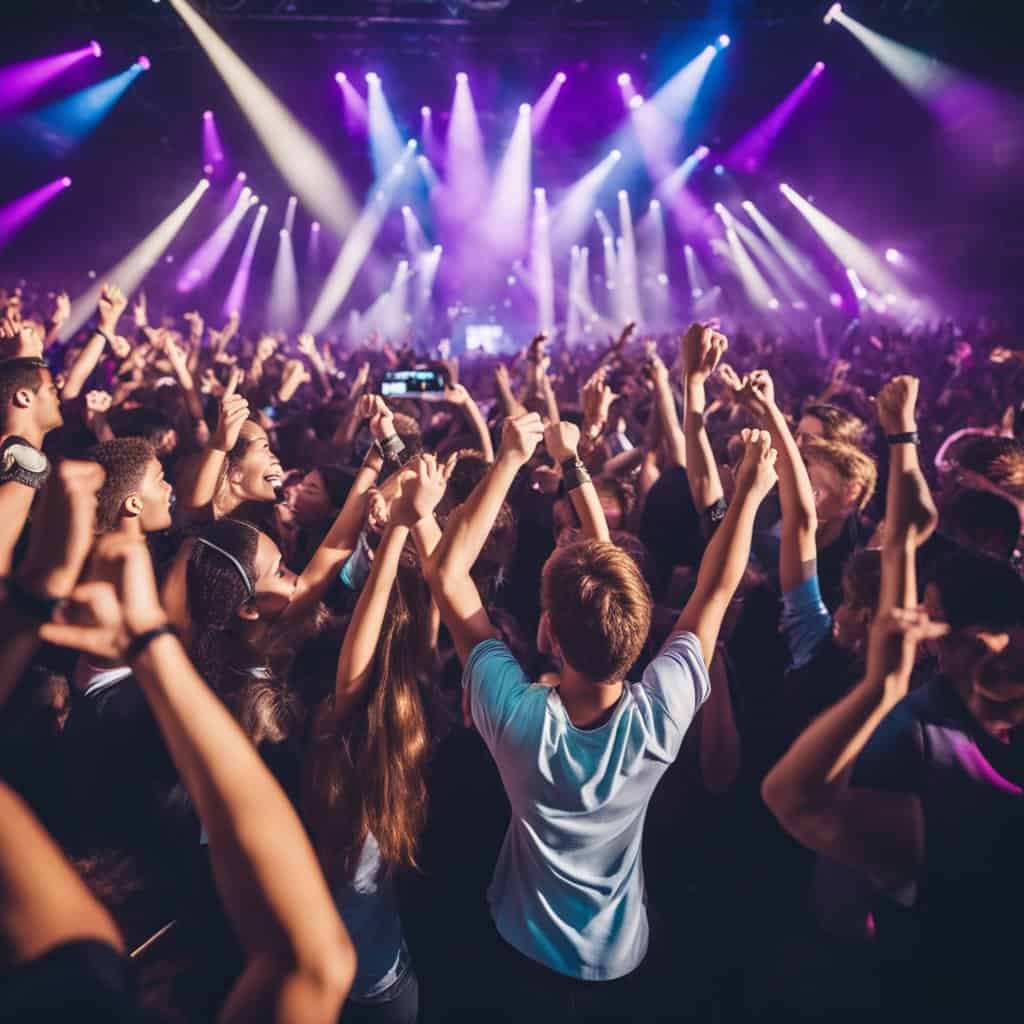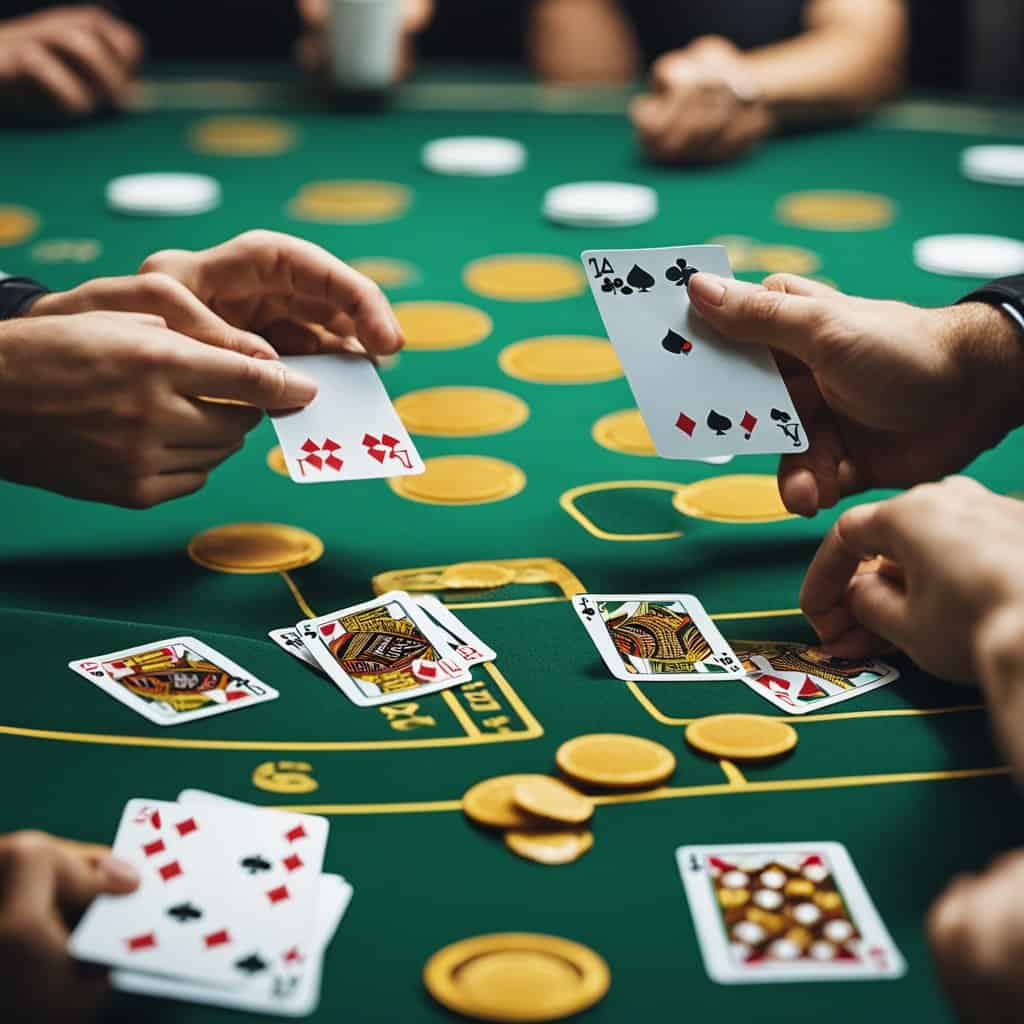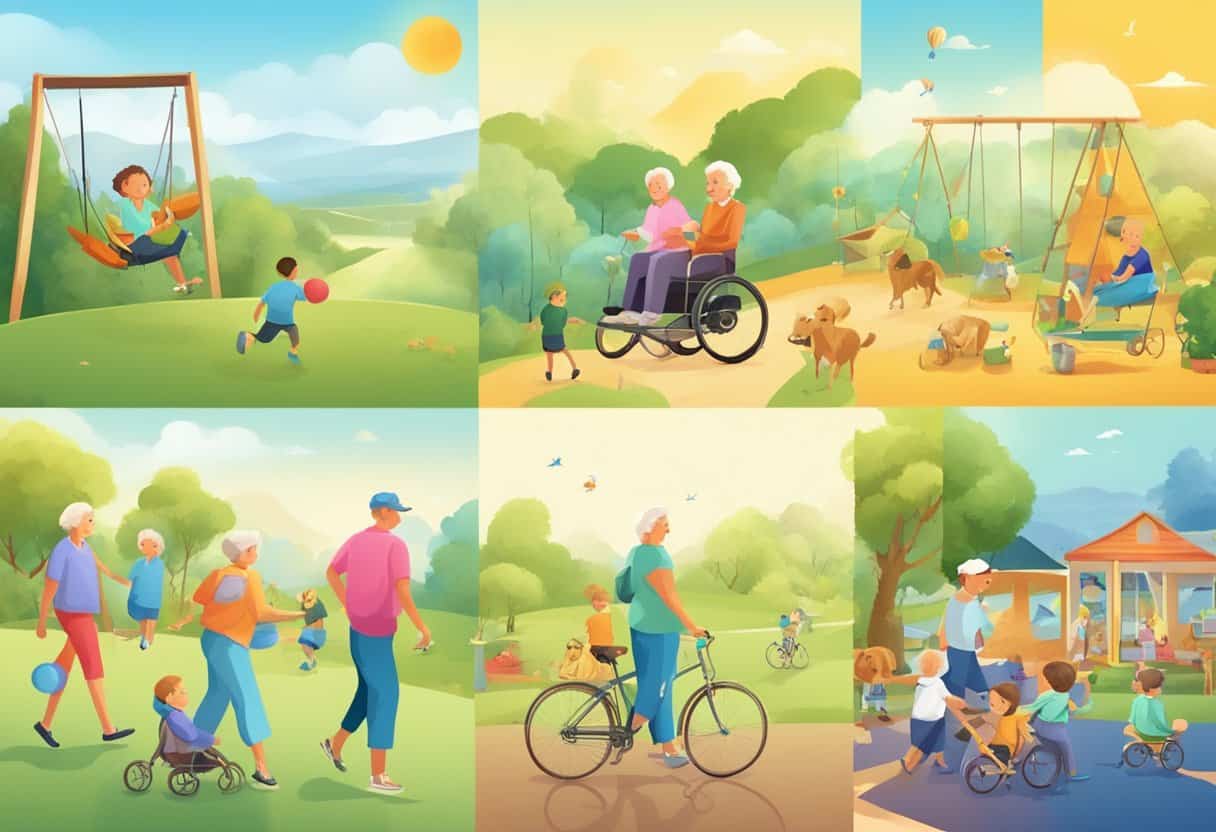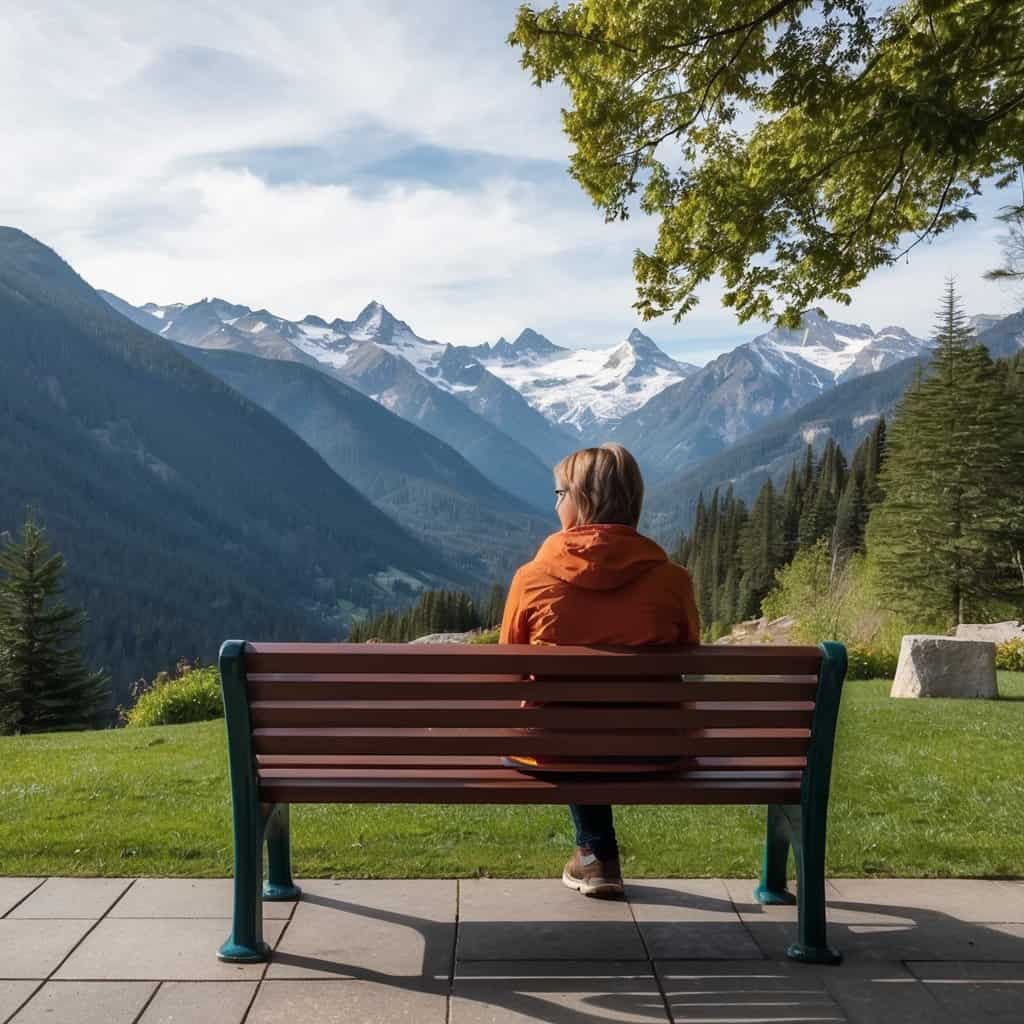The stages of life we all go through have a significant impact on the way we pursue leisure activities. Our priorities and preferences change depending on our life stage, leading to other leisure pursuits. Infants and young children, for instance, engage in leisure activities that help them develop their cognitive, social, and physical skills. They may play with toys, explore their environment, and interact with others. In contrast, adolescents may engage in leisure activities such as sports, music, and socializing with peers, as these activities help them build their self esteem, social skills, and identity. The impact of life stages and leisure pursuits helps us to plan the best way to meet our needs as we move through each stage.
Life Stages And Leisure Pursuits
Life is a continuous process marked by different stages, and each stage is characterized by unique physical, cognitive/emotional changes that affect an individual’s leisure pursuits. Understanding these stages is crucial in comprehending the impact of life stages on leisure pursuits and how leisure activities change throughout an individual’s life.

Infancy and Toddlerhood
During these stages, children depend on their caregivers for their basic needs. They have limited control over their environment, and their leisure activities are limited to what their caregivers provide. However, play is an essential part of their development, and they engage in activities such as exploring and testing their surroundings, playing with toys, and interacting with others.

Childhood
Children engage in outdoor activities such as running, jumping, climbing, and playing games with friends. As they age, they may develop hobbies such as drawing, painting, or playing an instrument. During childhood, children develop independence and control over their leisure activities. They engage in sports, games, and hobbies that reflect their interests and preferences. Education also becomes a significant part of their lives, and school related activities such as extracurricular clubs and field trips become part of their leisure pursuits.

Adolescence
During adolescence, teenagers develop a strong sense of identity and seek independence. They explore activities that reflect their interests and help them hone their skills and talents. Socialization and self expression become a significant part of their leisure pursuits, and they prefer to engage in activities such as hanging out with friends, attending parties and concerts, and playing video games with friends. They may also engage in physical activities such as sports or other outdoor activities.

Early Adulthood
Early adulthood is a period in life when individuals begin their journey toward independence and self identity. It is when you start to make deeper life choices, such as refining a career path, forming long term relationships, and establishing a home. During this stage, people typically focus less on their education and more on building their careers, although some may still pursue further education or training.
In terms of leisure activities, early adults tend to gravitate towards those that allow them to unwind and relax. Watching television, reading books, and travelling are popular leisure activities. However, it is also vital for individuals to engage in leisure activities that reflect their interests and hobbies. For example, some may enjoy participating in sports, such as basketball or tennis, while others may prefer creative pursuits like painting or playing an instrument. It is a period when individuals have the opportunity to shape their own lives and pursue their passions.

Middle Adulthood
During middle adulthood, individuals often start a family. This stage is characterized by family oriented leisure activities, such as spending quality time with their children, attending their children’s extracurricular activities, and going on family vacations. Adults may also engage in activities that promote their physical and mental well being, such as exercise, meditation, and hobbies. However, career and family responsibilities may limit leisure pursuits during adulthood. Despite this, adults may still find time to participate in leisure activities like gardening, cooking, or reading to regenerate their energy. In addition, they may also engage in more challenging leisure activities, such as pursuing a degree or certification in a particular field or participating in outdoor activities like hiking or camping.

Older Adulthood
During the Older Adulthood stage, individuals may have retired from their careers and have more free time. They engage in leisure activities that promote physical and mental wellness, such as exercising, socializing, and travelling. Education may also become a focus again, and they may attend classes or participate in programs that promote lifelong learning. As individuals enter their senior years, leisure pursuits may shift towards activities encouraging socialization and mental stimulation. So, they lean towards activities such as playing cards or board games, attending community events, or participating in exercise programs designed for older adults.
The impact of life stages on leisure pursuits is significant. As individuals move through different stages of life, their leisure activities often change to reflect their changing priorities, responsibilities, and opportunities.
Leisure Pursuits: A Means Of Self Expression
Leisure pursuits offer individuals the opportunity to express themselves in various ways. Whether through creative endeavours such as writing, painting, music, or physical activities such as sports or dance, leisure pursuits allow individuals to showcase their unique talents and abilities. This self-expression can bring individuals joy and fulfillment, helping them feel more confident and capable.
One of the primary benefits of leisure pursuits is the ability to engage in creative activities. Many people enjoy expressing themselves through art, music, or writing. These leisure activities allow individuals to tap into their creativity, producing unique and original works showcasing their talents and abilities. Engaging in creative pursuits can also be therapeutic, providing a way for individuals to process their emotions and experiences healthily and productively.
In addition to creative pursuits, physical activities can also be a means of self-expression. Sports, dance, and other physical activities allow individuals to showcase their physical abilities and talents. This can bring joy and pride as individuals work hard to improve their leisure skills and achieve their goals. Physical activities can also be a great way to connect with others, building friendships and social connections that can last a lifetime.

The Psychological Benefits of Leisure
Engaging in leisure pursuits can lead to a greater sense of well being, lower levels of anxiety, depression, and stress, and an increased experience of positive emotions.
Research has shown that leisure activities can promote wellbeing. This is likely because leisure activities provide a sense of accomplishment and satisfaction, which can help compensate for the negative experiences that individuals may face in other areas of their lives.
In addition to promoting subjective well being, leisure activities can lead to a flow state. Flow is a state of complete absorption in an activity, where individuals lose track of time and become completely immersed in what they are doing. This flow experience has been linked to increased happiness and satisfaction. Leisure activities can also help mitigate the adverse effects of stress on mental health.

Leisure and Relationships
Participating in leisure activities can strengthen relationships and improve overall satisfaction. For instance, a study published in the Journal of Marriage and Family discovered that couples who participated in leisure activities reported higher levels of intimacy, communication, and overall relationship satisfaction.
Participating in leisure activities can also help build new relationships. Joining a club or group with a common interest can help individuals meet new people and form new friendships. This is particularly important for older adults who may experience social isolation and loneliness.
However, it’s important to note that not all leisure activities suit all relationships. An activity one partner enjoys may not be enjoyable or comfortable for the other partner. In these cases, it’s essential to compromise and engage in activities that both partners can enjoy and feel comfortable with.

Productivity and Leisure
Leisure pursuits can have a significant impact on productivity. Many studies have shown that taking breaks and engaging in leisure increases productivity. When individuals take breaks and engage in enjoyable activities, they are more likely to return to work with renewed energy and focus.
Leisure activities can improve cognitive functioning and creativity, essential for productivity. Engaging in leisure activities can also help individuals manage stress and reduce burnout, which can hurt productivity.
However, it is essential to note that not all leisure activities are created equally in terms of productivity. For example, spending hours on social media or binge watching television shows may not be as beneficial for productivity as engaging in physical or mental stimulation activities.
It is also essential to find a balance between work and leisure activities. While leisure activities can improve productivity, too much leisure time can have the opposite effect.

Cultural Influence on Leisure Choices
Cultural background, values, beliefs, and traditions influence people’s leisure activities. Cultural norms and expectations can impact an individual’s decision to participate in certain leisure activities.
For example, in some cultures, physical activities such as sports and outdoor recreation are encouraged, while in others, they may not be as popular. Similarly, some cultures value intellectual pursuits such as reading and art, while others may prioritize social activities such as dancing and music.
Moreover, cultural differences can also influence the way people approach leisure activities. For instance, some cultures may view leisure as relaxation and stress relief, while others may see it as an opportunity for personal growth and development.
It is important to note that cultural influence on leisure choices is not limited to one’s ethnic or national background. Subcultures, such as religious groups, also play a role in shaping leisure preferences.

The Future of Leisure Pursuits
By 2060, the share of the American population aged 65 and older will grow from 15 percent to 24 percent, significantly impacting the future of leisure activities.
Advancements in artificial intelligence and other technology will also significantly impact the future of leisure pursuits. Digital entertainment is becoming more prevalent, with streaming services changing media consumption. Virtual reality technology is also becoming more accessible, allowing people to experience new forms of entertainment and travel from the comfort of their homes.
Overall, the future of leisure pursuits is likely shaped by demographic changes, technological advancements, and people’s desire for growth. As the world continues to evolve, leisure activities adapt and change to meet the needs of future generations.
Final Thoughts
Tthe impact of life stages and leisure pursuits is profound, influencing individuals’ preferences and priorities as they progress through different stages. Leisure activities serve as a means of self expression, offering psychological benefits, strengthening relationships, and influencing productivity. Regardless of the life stage and leisure pursuits are a consistent tool and resources we all need to have a balanced life.
Frequently Asked Questions
What are the benefits of participating in leisure activities at different stages of life?
Participating in leisure activities at different stages of life has numerous benefits. For children, leisure activities can promote physical, cognitive, and social development. For teenagers, leisure activities can provide a sense of identity and help develop social skills. For adults, leisure activities can reduce stress and promote overall well-being. For older adults, leisure activities can help maintain cognitive function, promote social connections, and improve overall quality of life.
How do personal interests and hobbies impact leisure pursuits at different stages of life?
Personal interests and hobbies can have a significant impact on leisure pursuits at different stages of life. For example, a child who enjoys playing soccer may continue participating as a teenager and adult. Similarly, an adult who enjoys reading may continue to read throughout their life.
What role does social support play in leisure activities at different stages of life?
Social support plays a crucial role in leisure activities at different stages of life. For children and teenagers, social support from parents, peers, and coaches can encourage participation in activities and promote overall well-being. For adults, social support from friends and family can provide motivation and encourage social connections. Social support can help combat loneliness and promote overall well-being for older adults.






